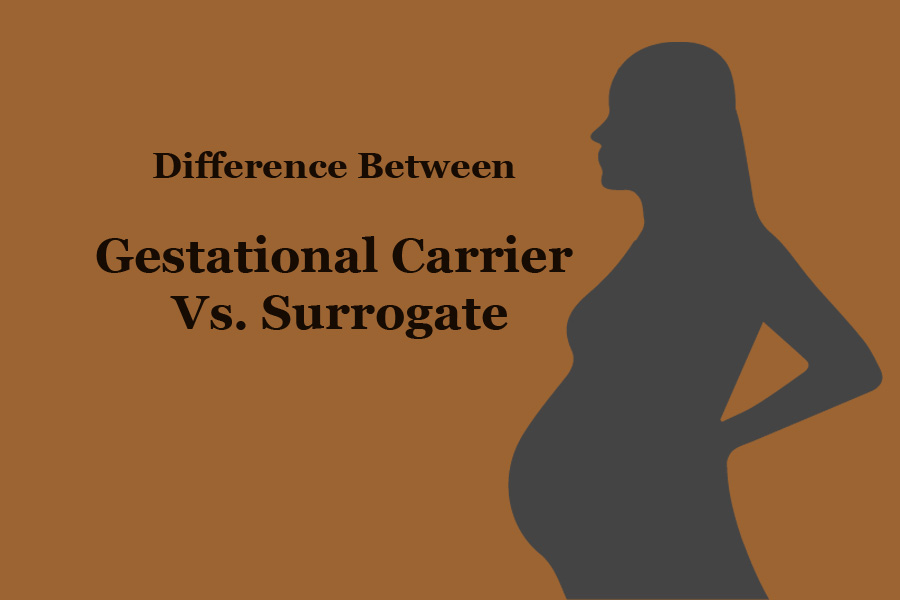With gestational carriers becoming more popular, more couples are considering this option to help them have a baby. There are a lot of things to think about when considering using a gestational carrier, from the legal aspects to the emotional ones. Here we’ll discuss some of the most common questions about gestational carriers.
This article includes the following:
● Who is a gestational carrier?
● Who is a surrogate?
● How a traditional surrogate is impregnated?
● The benefits of using a gestational carrier
● Your options if you choose to use a gestational carrier
● The process of using a gestational carrier
● How to choose a gestational carrier
● The costs of using a gestational carrier
● Legal and medical considerations when using a gestational carrier
What is a gestational carrier?
 A gestational carrier is a woman who carries a baby for someone else. She may be a friend or relative of the intended parents, or she may be a stranger. Some couples use a gestational carrier because the woman in the relationship cannot carry a baby herself. Others use a gestational carrier because they are using donor eggs or sperm.
A gestational carrier is a woman who carries a baby for someone else. She may be a friend or relative of the intended parents, or she may be a stranger. Some couples use a gestational carrier because the woman in the relationship cannot carry a baby herself. Others use a gestational carrier because they are using donor eggs or sperm.
Who is a surrogate?
 A surrogate also called a traditional surrogate is a woman who conceives and delivers a kid on behalf of someone who is unable to have children. The woman who serves as the traditional surrogate can become pregnant either through artificial insemination using donor sperm or by having her eggs fertilized in a lab using donor sperm to create an embryo. You can find a surrogate with the help of our Surrogacy Agency.
A surrogate also called a traditional surrogate is a woman who conceives and delivers a kid on behalf of someone who is unable to have children. The woman who serves as the traditional surrogate can become pregnant either through artificial insemination using donor sperm or by having her eggs fertilized in a lab using donor sperm to create an embryo. You can find a surrogate with the help of our Surrogacy Agency.
How a traditional surrogate is impregnated?
When a surrogate is used in traditional surrogacy, the process is fairly simple. Medical professionals artificially inseminate the surrogate using the intended father’s sperm. Fertilization of her egg is followed by pregnancy. After carrying it to term, she gives birth to the intended parents.
The crucial distinction between gestational carriers and surrogates must be emphasized, though. Given that the surrogate’s egg was used instead of the intended mother’s, she shares genetics with the child. In fact, this is the primary justification for the widespread prohibition of traditional surrogacy for family planning in the United States.
The benefits of using a gestational carrier
There are many benefits to using a gestational carrier. Perhaps the biggest benefit is that using a gestational carrier allows you to have a child when you would not be able to have a child without one. This is because using a gestational carrier allows you to use your own eggs or the eggs of a donor. Additionally, using a gestational carrier can be cheaper than using donor eggs or sperm.
Another benefit of using a gestational carrier is that you can use a carrier who is a relative or friend.
This can be helpful if you do not want to use a donor or if you do not have any eggs or sperm to use. Additionally, using a gestational carrier can help you avoid using a known donor, which can help keep your child’s genetic information confidential.
Finally, using a gestational carrier can be a great way to have a child if you are unable to carry a child yourself. This is because a gestational carrier will carry the child for you and will not be biologically related to the child.
Your options if you choose to use a gestational carrier
There are a few different ways you can go about using a gestational carrier if you choose to do so. You can either find an independent carrier, use a surrogate agency, or use a clinic.
Independent carriers are people who are not affiliated with any agency or clinic. They are often friends or family members of the intended parents. This can be a cheaper option, but it can also be more difficult to find a carrier who is a good fit.
Surrogate agencies are organizations that connect intended parents with potential carriers. They typically have a pool of carriers to choose from and provide screening and matching services. This is a more expensive option, but it can be more convenient and it can be easier to find a good match.
Clinics are organizations that provide all of the services necessary for using a gestational carrier. This is the most expensive option, but it can be the most convenient and it can be easier to find a good match.
The process of using a gestational carrier
A woman who chooses to use a gestational carrier to carry her baby is typically referred to as a “surrogate.” She will have an embryo created via in-vitro fertilization using her own eggs and the sperm of her partner or donor. The embryo will then be implanted into the gestational carrier.
IVF procedures are typically performed at a fertility clinic. The first step is to stimulate the ovaries to produce multiple eggs. This is done with fertility drugs that are taken by mouth or injected. Once the eggs are mature, they are removed from the ovaries using a needle inserted through the vagina. The sperm is then added to the eggs in the lab and the embryos are created.

The embryos are then transferred into the uterus of the gestational carrier. This is done using a thin tube passed through the vagina and cervix into the uterus. The carrier will typically have a few embryos transferred, but the number will depend on her age and the quality of her eggs.
The pregnancy is monitored very closely. The carrier will have regular ultrasounds and blood tests to check the health of the baby and the pregnancy. She will also be advised to avoid smoking, drinking alcohol, and using drugs.
The process of using a gestational carrier can be an emotionally difficult decision. It is important to have a clear understanding of the risks and benefits involved before making a decision.
How to choose a gestational carrier
If you are considering using a gestational carrier, there are a few things to think about. First, you need to find a reputable agency or lawyer who can help you find a carrier. You will also need to decide what type of carrier you would like to use. There are two types of carriers – traditional carriers and gestational carriers.
A traditional carrier is someone who is genetically related to the child. This could be the mother, father, or a relative of the child. A gestational carrier is someone who is not genetically related to the child. This could be a friend or family member of the parents, or a surrogate.
There are pros and cons to both types of carriers. Traditional carriers can be less expensive, but there is a higher risk of complications. Gestational carriers have a lower risk of complications, but they can be more expensive.
It is important to think about what is important to you and your family when choosing a carrier. Talk to your doctor and family members about what they think is the best option for you.
The costs of using a gestational carrier
The cost of using a gestational carrier can be expensive. Some couples may find that using a gestational carrier is the best option for them, but they may not be able to afford the cost. There are many different factors that go into the cost of using a gestational carrier, such as the location of the clinic, the type of procedure, and the gestational carrier’s expenses.
Some couples may be able to receive financial assistance to help cover the cost of using a gestational carrier. There are many organizations that offer grants or loans to help couples pay for the cost of using a gestational carrier. It is important to research all of the options available to you before making a decision.
The cost of using a gestational carrier can be expensive, but there are many resources available to help couples cover the cost. If you are considering using a gestational carrier, be sure to research all of your options and ask questions to help you make the best decision for you and your family.
Legal and medical considerations when using a gestational carrier
There are a number of legal and medical considerations to take into account when using a gestational carrier. The most important issue to address is the legal status of the gestational carrier. In most cases, the gestational carrier will be the legal mother of the child, even if she is not the genetic mother.
This can be a problem if the gestational carrier decides to keep the child after birth or if she dies during the pregnancy. In some cases, the intended parents may need to take legal action to establish their legal rights to the child.
Medical issues are also important to consider. The most common medical complication of gestational carrier pregnancies is pre-eclampsia, a condition that can cause high blood pressure, problems with the liver or kidneys, and seizures. It is important to work with a qualified doctor who is familiar with gestational carrier pregnancies to minimize the risk of complications.
Overall, using a gestational carrier is a personal choice that couples have to make based on their own individual circumstances. There are a lot of things to consider when making this decision, but with the right information and support, it can be a viable option for having a child.




No Comments